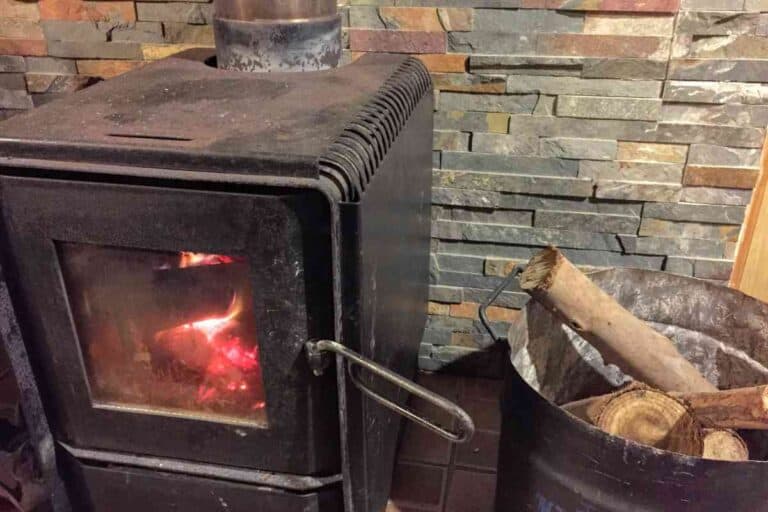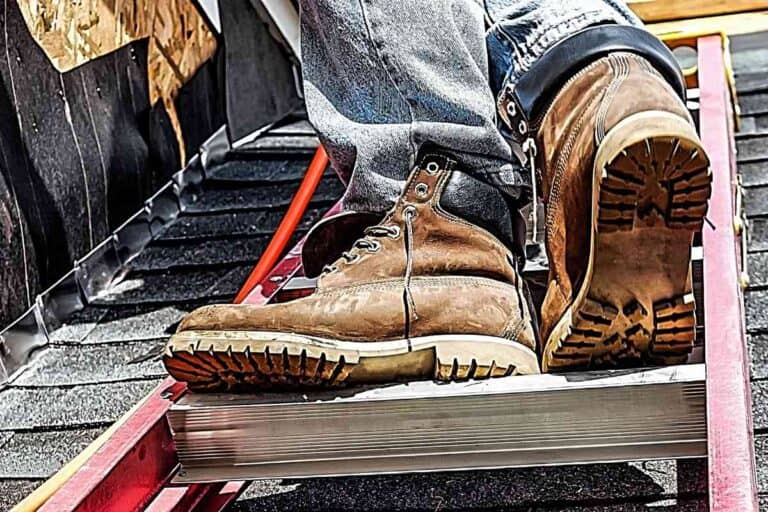Why Does My RV Refrigerator Hum? 4 Troubleshooting Steps
When living in an RV, every noise is noticeable. If you’ve been woken by appliances, you may be asking, why does my RV refrigerator hum? Appliances make a lot of different noises; some are normal, and some are enough to send any home or RV owner into a panic about replacement costs. For RVers and anyone living off the grid, it is extra important that you have a safe way to preserve food in between stock-ups. If your refrigerator is humming, there are a few cheap fixes that will make it stop.
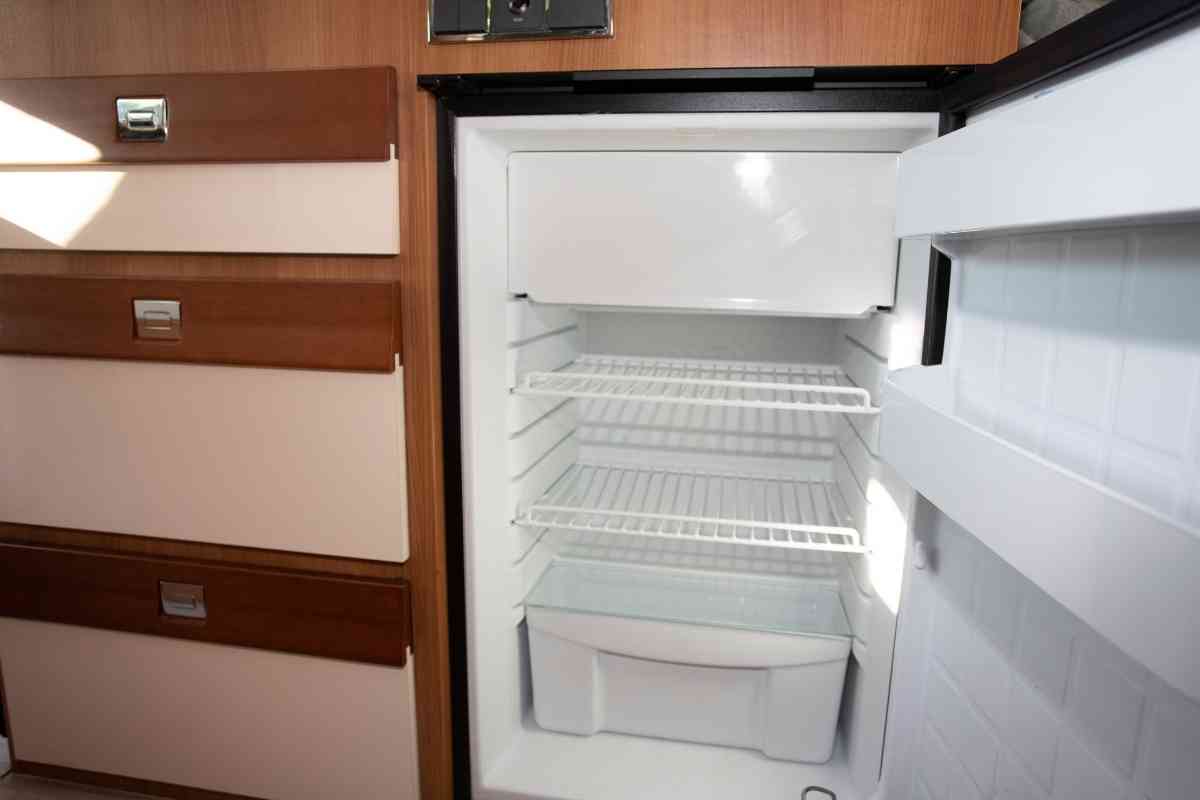
Why is my RV refrigerator humming?
For some models of RV refrigerators, a little bit of humming is normal. The sound is usually just a sign that the fans are working properly. However, louder humming than usual or whirring can indicate that the fans need to be replaced. This should be done as soon as possible to keep the fridge working.
Humming is not the only sound that can indicate a problem with your RV refrigerator. If the unit clicks and gurgles, that can indicate air in the pipes or a problem with igniting the pilot light. Most of these problems can be fixed without having to consult a professional.
When it gets to the point that the refrigerator is not staying cold, doesn’t close, or is covered in frost, that means it is time to replace the unit.
Sources include The Camping Advisor, RV Chronicle, The Getaway Couple, and Martha Stewart Living.
Does an RV Refrigerator Make Noise?
To some degree, all refrigerators make some noise, even when they are functioning perfectly.
Refrigerators in RVs and converted buses can be a little different from home refrigerators. For example, Norcold refrigerators are known for constantly emitting a soft humming sound. This noise is just the fans in the unit circulating cold air.
Hearing the humming of the fans can be an indicator that both fans are working properly without any frost, blockages, loose screws, or physical damage.
Some RV refrigerator models have a dual mode, in which the unit automatically switches itself between shore power and propane. Others are able to operate on and switch between shore power, DC power, and propane. If you have one of these models, you may be able to hear when the unit switches between different types of power.
If a normally silent refrigerator suddenly starts making noise, or if the usual humming noise changes, then that could be a sign that something is wrong.
How Do I Fix Humming From My RV Refrigerator?
The most common reason why an RV refrigerator is humming is because there is a problem with the fan. Over time, they may wear out, get loose, become outdated, or get blocked.
If an RV refrigerator is humming, it is not the end of the world. It is normally a simple fix that won’t even require hiring a professional.
All you have to do is locate the fan, which is normally at the bottom back of the unit near the compressor. See how the fans look; clean away any dust, tighten any loose screws, and ensure that no debris is blocking the fan.
If your fans look otherwise fine, you may need to replace them with a better, newer model. Older refrigerator fans are not built to be as quiet as modern fans and will get louder over time. For most issues, replacing the fan is enough to fix it.
However, if this doesn’t work, pay attention to when the humming is happening. If it only occurs when the refrigerator is on electric power, not propane, then this could indicate an issue with the compressor.
There are a few ways to troubleshoot compressor problems by yourself:
- Keep the fridge level by adjusting the feet or putting something under one side of it.
- Clean the compressor to correct dust blockages.
- Remove debris that might have gotten kicked under the fridge to prevent the compressor from being overheated.
- If the problem persists, it may be necessary to replace just the compressor or the entire unit.
How Do I Know If My RV Refrigerator is Bad?
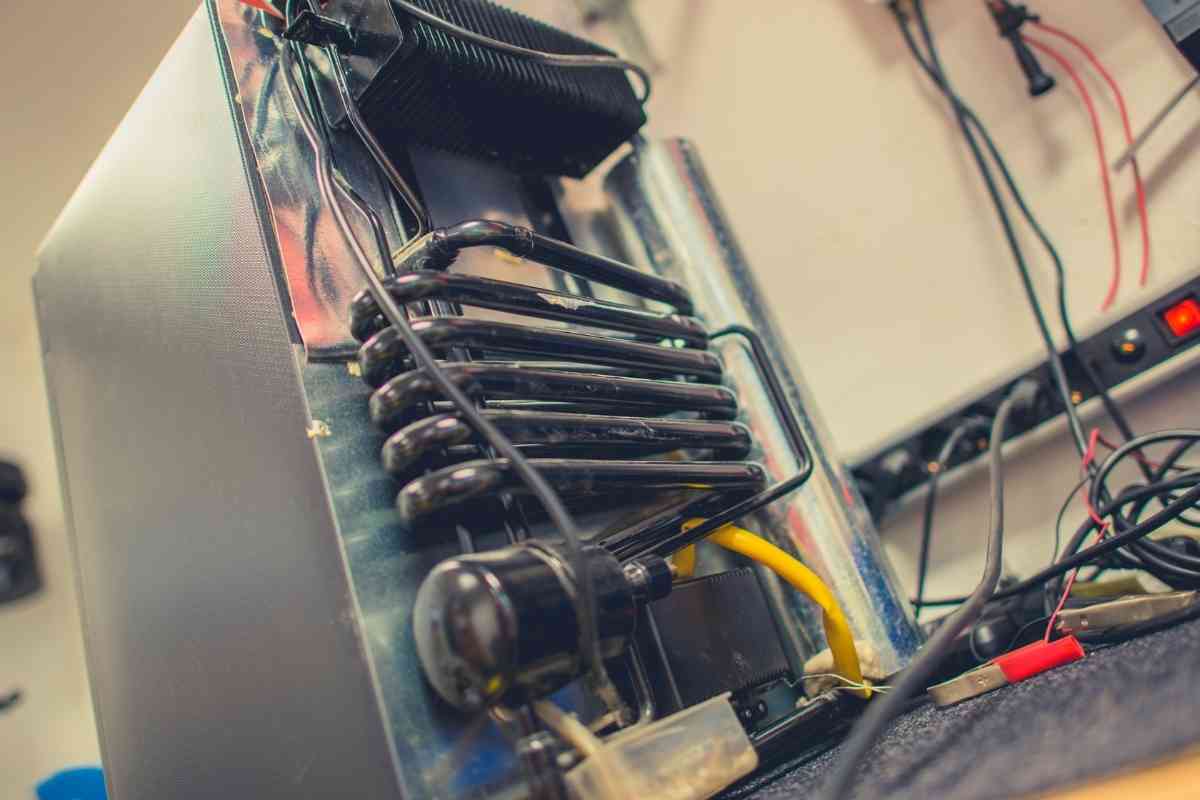
Some appliance problems can be fixed in a single afternoon with a few new parts, a beer, and access to the owner’s manual. However, it can be hard to know when the whole unit needs to be replaced. There are also times when the unit could be repaired, but it would be more cost-effective to invest in a new one.
Here are 10 signs that your refrigerator is bad and needs to go:
- Food is going bad more quickly than usual.
- The refrigerator can no longer stay cold. A fridge should be around 40 degrees or lower.
- Sounds like humming, gulping, and clicking persist or return, even after you have tried all of the normal troubleshooting measures.
- You have already replaced 1 or 2 parts, but it has not fixed the issue.
- It may also be time for a new refrigerator when you feel like you’ve thrown enough money at it and decide to stop.
- The fridge and freezer consistently have a build up of frost.
- The refrigerator doors do not close completely.
- The exterior of the unit feels hot or warm to the touch.
- If there is mold that has started growing throughout the tubes, circuits, or around the compressor.
- Broken ignitor, which can present as constant clicking or scorch marks and a burning smell from the pilot light.
How Do I Troubleshoot an RV Refrigerator?
Before you dismiss your refrigerator entirely, there are a few troubleshooting steps that you can take. Being able to troubleshoot your own appliances and fix things by yourself is a very important skill set for anyone who is living off the grid for long periods of time.
Power Cycling an RV Refrigerator
If your refrigerator is running continuously, setting itself to the wrong temperature, or giving you an error message, then it may be effective to power cycle the unit. You can do this by powering it all the way off and then unplugging it. You will need to let it sit for 30 to 60 minutes, then plug it back in and turn it back on. It may take several rounds of this to fix the issue.
How Do You Reset a Refrigerator in an RV?
If power cycling the unit did not fix any error messages, flashing lights, temperature problems, or constant running, then it may be necessary to reset the refrigerator. Resetting can also fix pilot light issues and a tripped circuit breaker. This is a little different from power cycling because it recalibrates the unit.
Resetting an RV refrigerator can be challenging because not every model has a reset button. If you have your user’s manual handy, it can tell you where the reset button is located.
If you do not have it, try checking the inside of the unit at the back or side; the button is usually located above the second shelf. Alternatively, the reset button can also be located at the back of the unit near the bottom. When you find the reset button, hold it down for 3 seconds then let go.
If your unit does not have a reset button, then there is another way to perform a manual reset. First, disconnect the refrigerator from power in the RV, then hold down the Refrigerate button for 10 seconds.
Release it, wait 10 seconds, then press it again for 10 seconds. Repeat this process 3-4 times in a row. When you reconnect power, the refrigerator should be reset.
If your refrigerator does not have a Refrigerate button, a manual reset can also be done by following the above steps using the Temp Set button.
Interior Lights Are Off & The Refrigerator is Not Cold
When you open the refrigerator to find that it is not cold and that the interior lights are off, it is probably an issue with the fuses.
If only your refrigerator is not working, that means that the problem is with the unit’s electrical system, rather than with your whole RV. When this happens, simply open the panel on the back of the unit and replace the blown fuses.
How To Burp a Fridge To Fix Gurgling Sounds
Another common refrigerator noise is gulping or gurgling. That is the sound of air bubbles in the pipes. It can be easy to fix by burping the unit, but it is time-consuming. To burp a fridge, you will need to disconnect it from the propane and the power.
Slide it out of its normal space and flip it onto one side. Leave it there for 4 to 6 hours and then flip it onto the top and eventually the other side. The refrigerator should sit on each side for several hours.
Should I Leave My RV Refrigerator On All The Time?
There is nothing dangerous about leaving an RV refrigerator on all the time. It is a personal choice, which is dependent on how you use your refrigerator.
If you are low on battery or propane, then you may consider turning it off to save resources. Some RV lifers will keep their refrigerator off except when they have a hook up, as to conserve the rig’s battery. Running an RV refrigerator all the time can shorten its lifespan due to strain on the cooling coils.

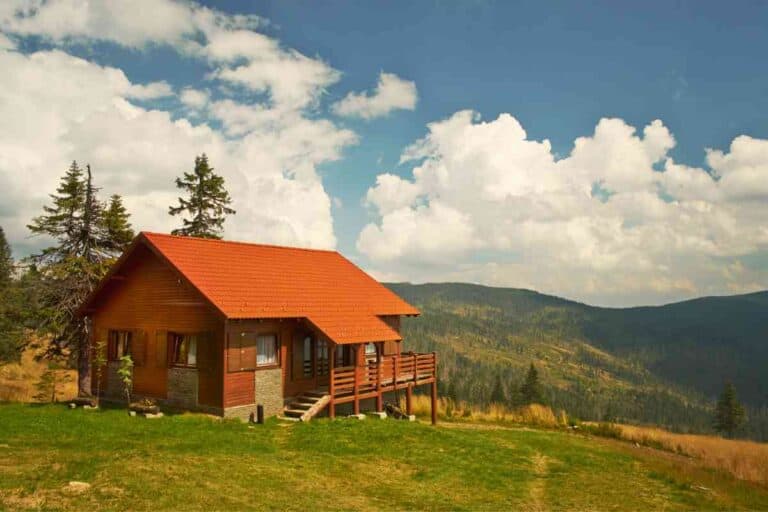
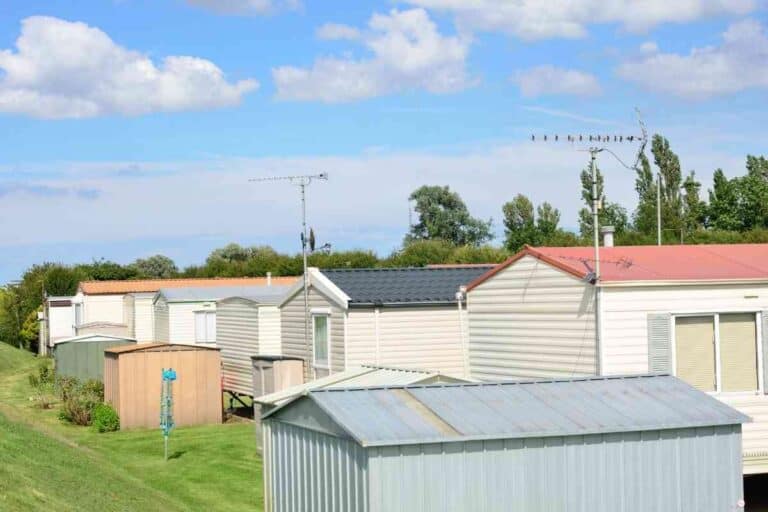

![Can I Live In A Yurt On My Own Land? [Answered!]](https://freedomresidence.com/wp-content/uploads/2022/05/Can-You-Live-in-a-Yurt-On-Your-Own-Land-1-768x512.jpg)
